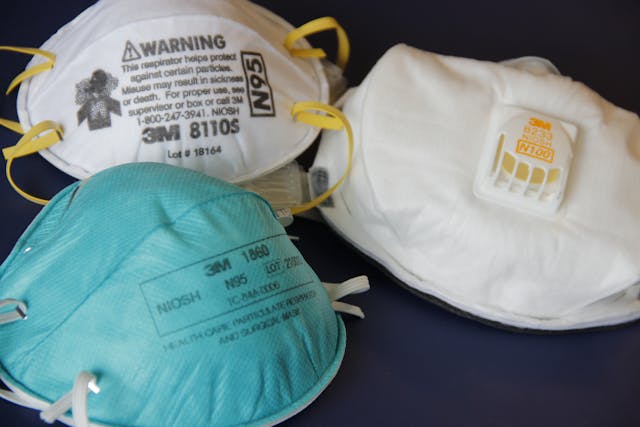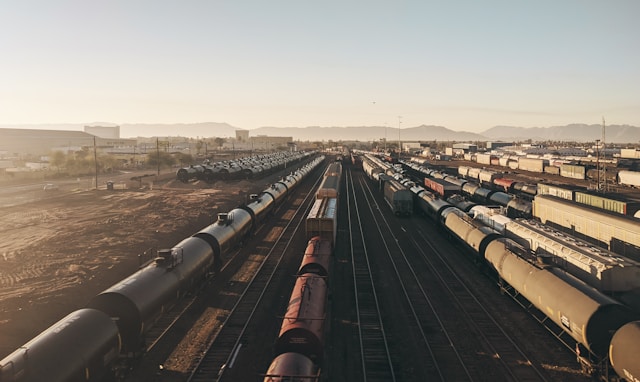

Welders commonly fuse metal for the fabrication and repair of railroad tracks and various locomotive parts. The fumes produced by welding vary, but they generally contain a toxic mixture of metals, chemicals, and other substances. Regulation inhalation of these fumes can lead to welder injuries, including chronic lung disease and lung cancer. All railroad employees work in a notoriously dangerous industry. Their working conditions leave them more vulnerable to injuries and illnesses, such as those that welders may develop. A railroad injury lawyer may be able to evaluate the circumstances that led to your work-related injury or disease and gather the evidence necessary to hold your employer responsible for damages.
In addition to occupational diseases that welders may develop, like other railroad workers, they also may experience various hazards that can result in injuries to them. Working conditions are often poor, which can easily lead to injuries with equipment, materials, and trains.
Injuries may include crush injuries, traumatic brain injuries, broken bones, and more. Burn injuries, amputation, and spinal cord injuries also are possibilities when working on or near moving trains. When sustained in the course of their employment, welders and other railroad workers may be entitled to compensation under FELA. An attorney who deals with railroad welder injuries could provide further information.
Railroad yards, trains, and railroad tracks are full of hazards that can easily cause severe injuries to workers. A particular risk for railroad welders is the harmful and toxic fumes from manual electric arc welding, which is the most common type of welding in the railroad industry. Constant inhalation of these fumes can lead to lung cancer and occupational lung disease, both of which are compensable under FELA. Railroad track workers are also subject to welding fumes from boute or thermite welding, which are common welding processes used to repair railroad tracks.
Railroads employ welders to fuse metal pieces and repair cracks in railroad tracks and in various metal parts of railroad engines and cars. As a result, welders consistently are inhaling fumes that often make them chronically ill. In many cases, the welding occurs in areas that are confined and not well-ventilated.
Welders working outside on the tracks themselves or even those who work full-time in a railroad shop are entitled to benefits should they become injured or ill. Enlisting a railroad welder injuries lawyer can be crucial to establishing coverage under FELA for injury or illness due to welding duties.
Like other railroad employees, railroad welders are uniquely susceptible to a whole host of catastrophic injuries and illnesses. These occupational hazards can leave welders and other workers disabled, unable to work, and in need of ongoing medical care. Fortunately, the Federal Employers’ Liability Act or FELA, 45 United States Code § 51 provides a means for injured workers to recover compensation from their negligent railroad employers.
Under FELA, injury victims must prove that the action or inaction of their employers caused the condition that led to their injuries. For instance, injured workers may be able to establish negligence on behalf of their employer if the employer failed to provide them with adequate safety gear or training. Failing to protect workers from the toxic chemicals and other substances that typically permeate railroad yards is another potential ground for employer liability.
Proving that the employer was negligent for the incident or condition that caused injuries to a welder or another railroad employee is a requirement to obtain FELA benefits. Unfortunately, railroads often vigorously fight these claims to avoid paying out a lifetime of medical care and benefits for workers who have suffered devastating injuries and illnesses. Engaging a welding injury lawyer early on in the FELA claims process may be the most effective means of building a successful claim for benefits.
Railroad injury cases are unique, both in the standard of proof required to obtain FELA benefits and the conditions that can lead to injury or illness. When the negligence of rail carriers leads welders to suffer injuries or illness, they may be entitled to seek damages for their welder injuries.
Holding the railroad industry accountable for its negligence is necessary to get you the benefits that deserve. However, it also is essential to prevent other railroad workers from suffering similar harm. When held responsible for negligence, rail carriers may be forced to change their practices or face further liability. Schedule a consultation today to learn about what may be possible in your case.



© 2026
Doran & Murphy, PLLC
All rights reserved | Attorney Advertising